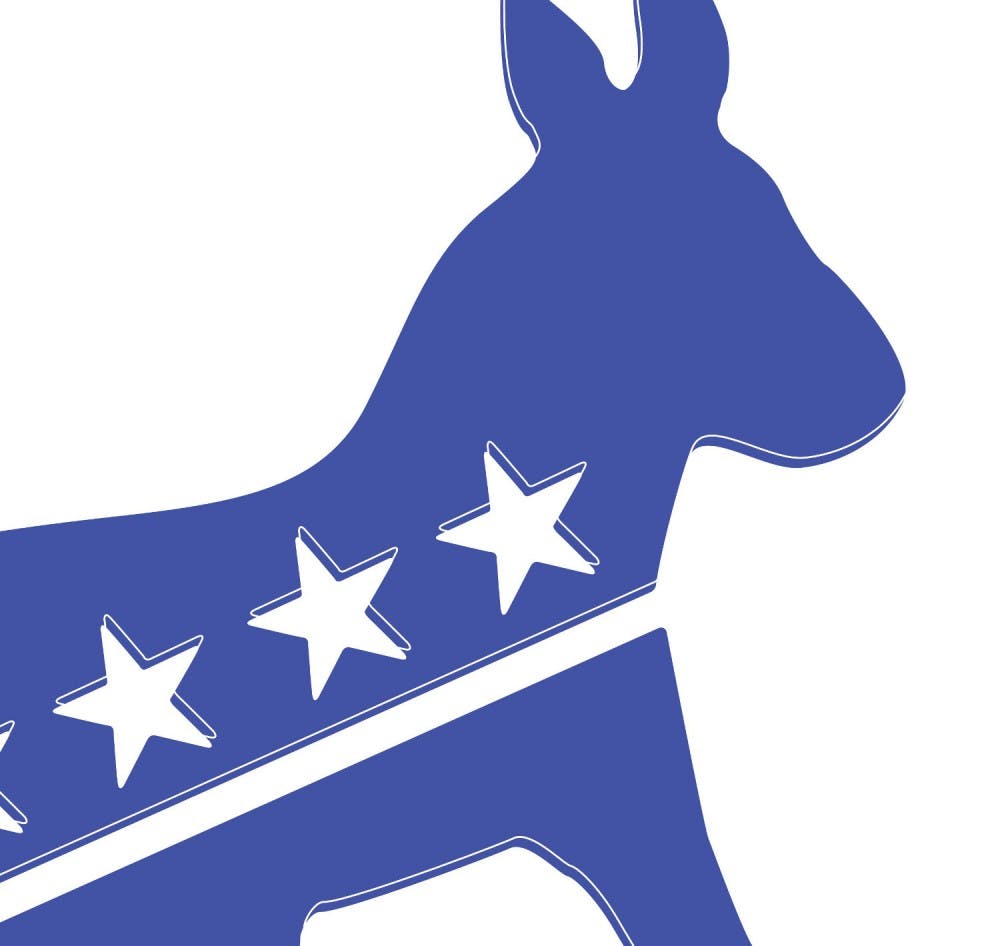Illustration by Katie Slack
The 2018 midterm elections saw several glass ceilings shattered: A record 117 women were sworn into the most diverse roster of Congresspeople ever seen before. Many of these were freshman Democrats, and their victories represent a shift in American politics.
Who exactly fits in this group depends on how you choose to frame the issue. Perhaps the group’s most prominent member is the political firebrand Alexandria Ocasio-Cortez. The former organizer for Bernie Sander’s presidential campaign from the Bronx captivated media attention and dominated much of the news cycles throughout her campaign, with highly polarized takes emanating from conservative and liberal outlets. She ultimately defeated 10-term Democratic Congressman Joe Crowley in a major upset.
Beyond AOC, the only other member of the Democratic Socialists of America in Congress, Rashida Tlaib, is also commonly stratified into this group. The Democrat from Minnesota is (alongside Somali-American Ilhan Omar, also of Minnesota) is one of the first Muslim women to be elected to Capitol Hill. While Tlaib didn’t draw quite the level of media attention as AOC, the levels of grassroots passion that fueled her campaign were certainly similar.
These members represent a changing Democratic Party – a rebuke of Donald Trump and his politics, sure, but more precisely a growing disdain among the more progressive Democrats for the existing bureaucrats perceived as inefficient and passionless.
“The older bureaucrats haven’t seemed to have the same vigor and passion for politics as these new-wave Democrats have," said Julia Crosby, a Freshman Council representative and member of the Elections Commission. "I think having that new perspective is important to the political process.”
To Cam Williams, a second-year political science major, the so-called “establishment Democrats” that are now facing challenges from similar young progressives are reaping what they have sown, at least in part. "The party has traditionally been the party of the lower and working classes,” he said. “However, the establishment Democrats have pushed people away from the party and into the arms of Republican populists.”
The idea that the Democratic Party needed to change has been an idea pushed long before the election of Trump, says Ethan Magnuson, a second-year student and the former vice president of the College Democrats’ executive board. He tied the strengthening tide of the progressive movement to an overall rise in dissatisfaction with American capitalism.
“People are realizing how serious the consequences of capitalism have been: wage stagnation, climate change and the yawning wealth gap are only a few examples,” he noted. And whereas some in Washington have come to regard this rising caucus as an emerging threat to their electoral security, Magnuson says that it has already taken its hold on Americans: “The era of wishy-washy Democrats is over,” he said.
Among these three, the political inferiority of establishment Democrats to the young progressive ones is practically axiomatic. However, for Ashley Harrington – a second-year political science major and current executive in College Democrats – it isn’t quite as easy to endorse replacing one with the other. “I do love the fresh faces of the party, but I fear they are bringing negative opinions on the mature, centrist Democrats who have done so much for the party,” she said. Harrington pointed out that many of her Democratic peers weren’t very excited about Nancy Pelosi’s return to Speaker of the House. Still, she says these freshman Democrats aren’t anti-establishment, but rather, “they are representing a more progressive America,” and concedes that “centrist Democrats are failing to keep up and maintain their seats when challenged by new Democrats.”
The popularity of this freshman class of Democrats seems to be unwavering, and similar candidates are coming out in force and announcing their intentions to run for office around the nation. What this means for the future of the Democratic Party remains uncertain, but at least to USC’s Democrats, it’s a good new direction for the party.

